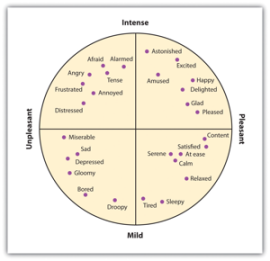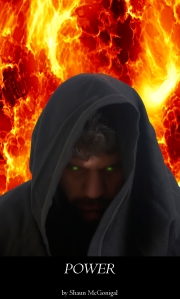When I was younger, I really wanted to be wise. I had a vision of me being the kind of person that when I became old, other people would respect me and come to for life advice. I was fascinated by books such as the Dao de Jing, by the historical character of Confucius, by Socrates, and many other figures who are considered wise. I tried to cultivate a cultured and educated manner. I tried to be intellectual. It was not all pretense; in fact, it was mostly genuine, if not sophomoric and (as Gina would say) “full of shit.”
Over the last few years, I have begun to understand this drive from a different point of view. I have come to realize that this motive comes from a combination of the desire to be loved, respected, and to not become the kind of person that people avoid, rather than come to. In short, it was a reaction that people often had to me, and for good reason. There are people who are no longer friends of mine and who want little to do with me, and in many cases the fault is mostly mine.
When I was introduced to the concept of Borderline Personality Disorder by a therapist a few years back, it led to a set of realizations. When I was younger, back when I wanted to be wise, I was struggling with feelings of confusion, fear, and guilt about my erratic behavior. Other people didn’t fly off the handle, yelling and throwing things, when they got angry. Something was wrong with me, but I didn’t know what it was. I wanted to be the opposite of out of control, so I wanted to be a symbol of control. I didn’t want to be seen for what I was (a violent and unpredictable boy with a tendency to be moody and sullen), I wanted to be seen for what I valued (intelligent, rational, calm, and likable). So why was it so hard for me to do so, when it seemed so easy for so many other people?
Because I am swimming in a different river.
And as I started to reflect on this over the last few years, another angle of this became clear. It was struggling just for normal, acceptable, behavior. It wasn’t so much that I wanted to be some wise guru, living on a mountain (perhaps next door to Zarathustra) who everyone respected, it was that I was struggling against a current that other people didn’t experience. I was simply trying to appear normal while struggling frequently.
But before I started to understand this, I had built up so much resentment, anger, and frustration at seeing other people so easily deal with emotionally trying circumstances (compared to what I often did, anyway). I didn’t understand that they weren’t actually succeeding in struggling against the an overwhelming current of virulent emotions like I was. I didn’t understand that such a current of emotions was rare for them, rather than constant and overpowering. But I was so angry, ostensibly at them but really at myself, about it that it has led to many deep wounds and scars that I still have work to understand. There is still work to do.
See, for so long I thought that at some moral fault, rather than simply dealing with a shitty situation. I thought that when I got angry and made a scene, I was the only one in the room who had not succeeded in stifling the urges. I thought everyone else around me was struggling with these feelings, and doing it better than I. And so I strove for that power to restrain and repress it, to appear calm while hurricanes blew in my head, and to appear calm. And so I built invisible armor for myself, holding in the feelings i assumed everyone else was having and restraining as well.
And I did this for years, until it became habit. I did it for a long time, with periodic explosions as the armor shattered against the pressure.
Anyone who meets me for the first time will probably assume I’m relatively non-emotional. I’ve been told this by many people, including some ex-girlfriends (before i started to become comfortable with my emotions, which is still a struggle) even up until quite recently. I appear robotic, hyper-rational, and even cold sometimes. It is a defense mechanism that I have built over many years, and deconstructing that wall is not easy. It may take the rest of my life to do so, assuming I ever can.
(I hope I can)
But now I understand that most people aren’t walking around with a chaotic storm within them. Most people don’t have frighteningly violent thoughts several times a day, aimed at people who are guilty for minor annoyances. Most people aren’t swimming against a current that sometimes takes all of their mental fortitude to not be pushed back by or drowned in (because depression is a thing).
And yes, there is another side to this. There is the overwhelming feeling of love and intimacy that I am capable of as well. Of course, the problem is that especially in the beginning of a relationship, it is terrifying to show this. I’m afraid that, much like the potential harm I am capable of, the level of intimacy I can show would be too much for someone, especially when things are new. I’m afraid of pushing people away. i was, in some past selves, the guy who was too into that girl after one date.
But you know what is even more terrifying, to me than all of that? Intimacy with other men. And, I know, this is common in our culture. I also know that part of this is due to my relationship with my own father, who is a sort of foil for me (the Darth Vader to my Luke Skywalker, as I sometimes think of it). Men are hard because they reflect myself too much. I see the same fear in them that I show, and I hate it because I hate that part of myself. I hate that we keep doing it, and that I don’t know how to fix it.
It’s easier with women, because the sexual and romantic feelings open the door to other kinds of intimacy. Perhaps it would be easier if I were bisexual. Perhaps not. But either way, this lack of intimacy can lead to the problem of relying too heavily on sexual and romantic desires becoming too prominent when befriending women, but for the most part I have been fairly good at mitigating this. But with other men?
Terrifying.
I have no interest in the machismo game of our culture. I don’t want to play dominance games, and usually simply avoid them for the sake of peace and not escalating into a situation where I will very likely lose control of my temper (which, to macho men, probably seems like weakness. But man is it hard sometimes…). I am a little amused by such games, but I feel more sadness at it. I feel sad because it is so often the source of the barriers that men put up between each other, this machismo and dominance games. Sometimes I’ll walk away with a smirk, feeling superior for not playing, and other times I walk away feeling angry, for ‘letting them win.’ Neither are the right attitude, I don’t think.
I think the right attitude is to come away from such things feeling sad that another path could not have been taken. I think that in such games, nobody really wins. I don’t win by being emotionally superior, and they don’t win for having me back down. There simply is no winning there, only loss on both sides.
So, have I become wise? Will I ever be wise? I don’t know. At this point, I find the whole question to be a rationalization for a conceit. That isn’t to say that I no longer care about being wise, but that this caring is fading over time.
I hope, one day, that I can stop trying to be wise, so that perhaps I can just be content whether I’m wise or not.
ah, just more conceit….




